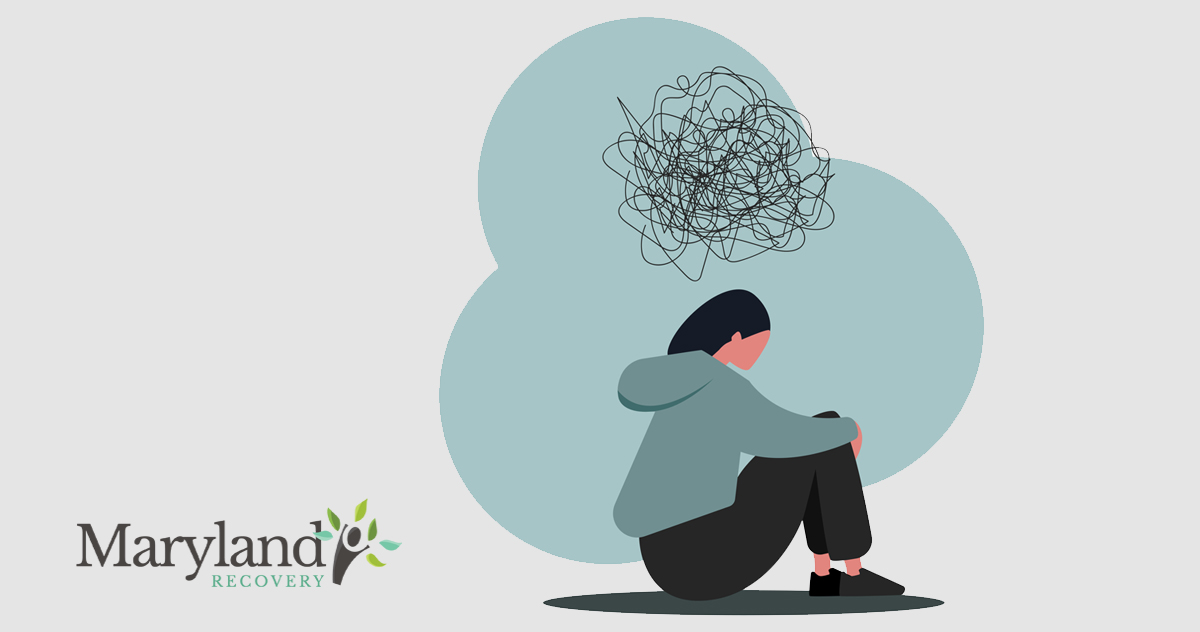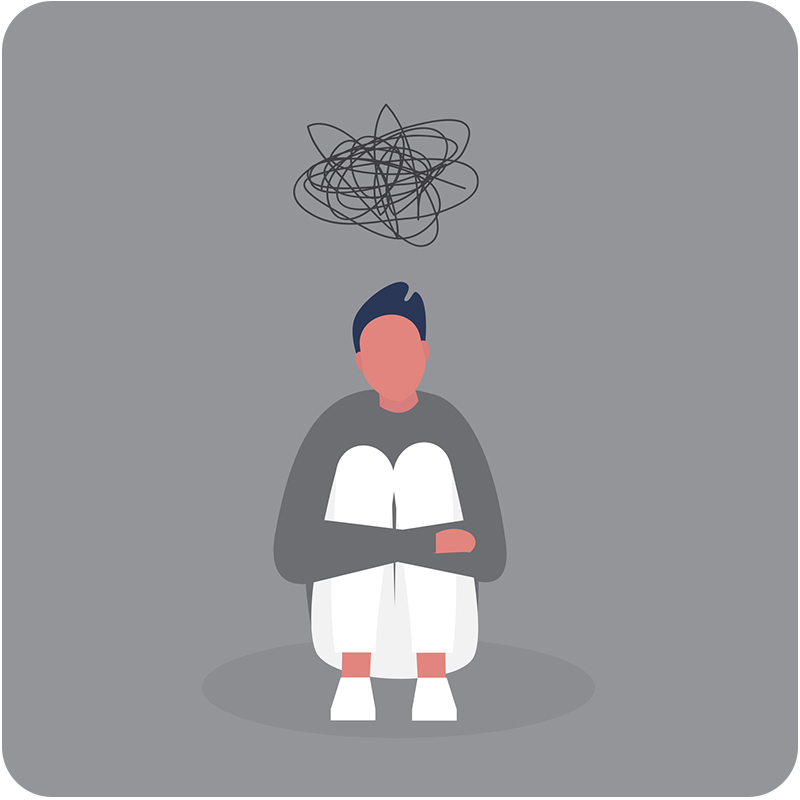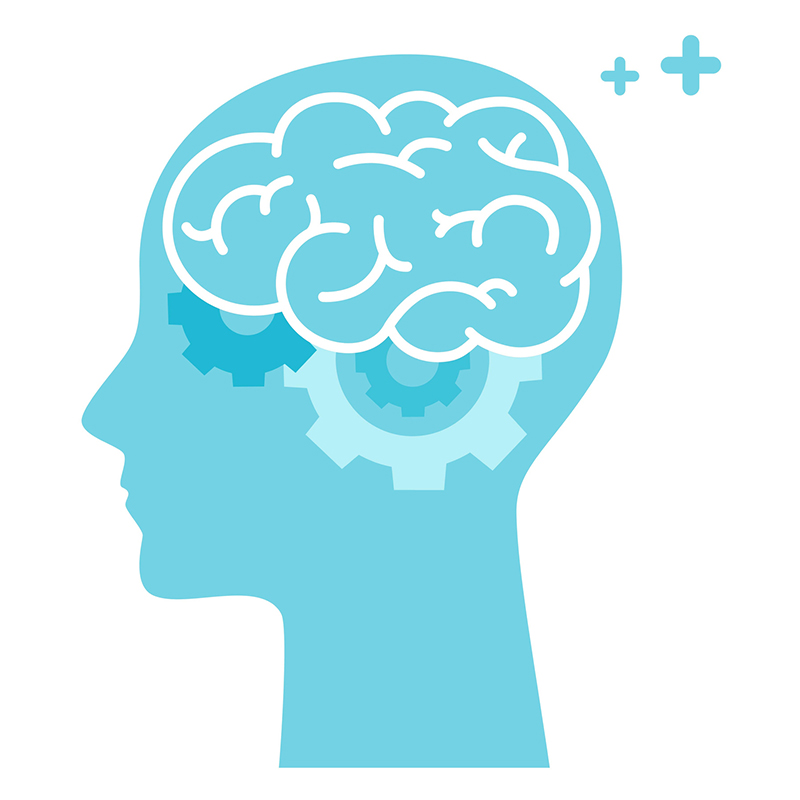
Addiction is a chronic physical and psychological problem that affects millions of people around the globe.[1]Branch M. N. (2011). Drug addiction. Is it a disease or is it based on choice? A review of Gene Heyman’s Addiction: A disorder of choice. Journal of the Experimental Analysis of Behavior, … Continue reading It can impact anyone susceptible to its effects and does not discriminate against any age, gender, race, or socioeconomic status. It’s a highly complex condition that can be difficult to understand, leaving an individual and their loved ones feeling helpless and hopeless.
There are various signs and symptoms that may indicate someone is struggling with addiction. It’s essential to be aware of these signs so that you can either seek help when you recognize them in yourself or assist a loved one who could use your support. The effects of addiction know no bounds, but while it may seem that addiction has taken over someone’s life, there is always hope for a full recovery. It all begins with identifying the signs.
“Addiction does not discriminate against any age, gender, race, or socioeconomic status”
Common Signs of Addiction
Life can present many challenges and hardships, and often those hardships are reflected upon the individuals themselves. However, when someone is addicted to drugs or alcohol, they may exhibit specific signs that differ from those that may come from working through a tough time.
Here are some common signs and symptoms of drug abuse to watch for, whether in yourself or in a loved one.
Changes in Appearance or Hygiene
When someone is suffering from addiction, they may start to let their appearance and hygiene slide. This could include allowing their hair to become unkempt, not showering or bathing regularly, or wearing the same clothes again and again. This shift can result from neglecting self-care or simply not having the energy to keep up with their usual routine. Sometimes that lack of energy is the result of drug or alcohol use, as these substances may interfere with a good night’s sleep. It’s important to keep an eye out for any changes in appearance or hygiene that do not align with the person’s usual behavior, as this could indicate addiction.
Inability to Maintain Responsibilities
Addiction can cause people to struggle in their personal and professional lives. They may start missing work or school, miss important deadlines, or neglect their family and friends. This is often because they are preoccupied with drug or alcohol use. In addition, the effects of the drug may reduce their urgency and desire to complete these tasks.
Sudden Weight Loss or Gain
Addictions can sometimes lead to drastic changes in appetite, which can result in sudden weight loss or gain.[2]Volkow, N. D., & Wise, R. A. (2005). How can drug addiction help us understand obesity? Nature neuroscience, 8(5), 555-560. This is often due to an inability to eat or sleep properly. In addition, it’s important to consider the direct impact some drugs or alcohol have on the body’s metabolism.

Change in Social Circles
It’s not uncommon for someone with an addiction to start withdrawing from their usual social activities or groups.[3]McGregor, I. S., Callaghan, P. D., & Hunt, G. E. (2008). From ultrasocial to antisocial: a role for oxytocin in the acute reinforcing effects and long‐term adverse consequences of drug use? … Continue reading They may stop hanging out with friends, going to the gym, or participating in activities they once enjoyed. This is often because their addiction has taken over their life, and they no longer have the time or energy for anything else. Additionally, they may start to associate with a group of people who use drugs or alcohol, as this has become their new “normal.”
If you notice any of the above signs in yourself or a loved one, it’s important to reach out for help. Some of the most powerful recovery stories began because a loved one noticed one of these symptoms and took action to encourage the individual to get help. Early intervention is crucial in the fight against addiction, so don’t hesitate to reach out if you’re concerned about yourself or someone in your life.
The Effects of Drug Addiction on the Body
The signs listed above are not the sum total of substance addiction’s impact on a person. Taking drugs or using alcohol causes several other effects on the body, some of which can be long-lasting or even permanent, and many of which aren’t outwardly visible. These effects can range from mild to severe, and they vary depending on the type of substance being used.
Some common effects of drug addiction include:
Anxiety
Many substances can cause anxiety,[4]Viney, L. L., Westbrook, M. T., & Preston, C. (1985). Sources of anxiety in drug addiction. Journal of Clinical Psychology, 41(1), 124-129. often accompanied by a racing heart, sweating, and difficulty breathing. A feeling of being on edge or paranoid is also common and may be a noticeable change from the person’s usual state.
Depression
Substance use can cause a person to feel hopeless, worthless, and helpless.[5]Corcos, M., Speranza, M., Loas, G., Perez-Diaz, F., Venisse, J. L., Lang, F., … & Jeammet, P. (2004). Alexithymia, depression, and drug addiction. L’encephale, 30(3), 201-211. This can lead to a loss of interest in activities that were once enjoyed, as well as social withdrawal. Unfortunately, depression and loss of social interaction can become a vicious cycle for many people.

Memory Problems
Substance misuse can cause difficulties with memory. People may have trouble remembering recent events or forget things that happened in the past. This is especially common with long-term drug use, as some substances can damage the brain’s ability to store memories over a long period.[6]Acord, L. D. (1972). Hallucinogenic drugs and brain damage. Military medicine.
Mood Swings
A person addicted to substances may experience sudden mood changes, from happy and energetic to angry and aggressive. This is often the result of the substance’s effects on the brain’s chemistry. Mood swings can also be a sign that the person is struggling to cope with their addiction.
Nausea and Vomiting
Nausea and vomiting are common side effects of many substances, particularly those taken in pill form. It can also be a symptom of withdrawal, which can occur when someone stops using drugs after heavy use and then begins to experience nausea.
Strokes
Some drugs, such as cocaine and methamphetamine, can cause the blood vessels in the brain to constrict. This can lead to a stroke,[7]Fonseca, A. C., & Ferro, J. M. (2013). Drug abuse and stroke. Current neurology and neuroscience reports, 13(2), 1-9. which can cause permanent damage or even death.
Brain Damage
Long-term substance use can cause changes in the brain that are permanent and irreversible.[8]Acord, L. D. (1972). Hallucinogenic drugs and brain damage. Military Medicine, 137(1), 18–19. This damage can lead to memory, learning, and motor skills problems. Additionally, it can make a person more susceptible to mental illness.
These are just some of the ways addiction can affect the body. There is no doubt that drugs and alcohol are not a natural or healthy influence on the human body, and their effects can be devastating. Identifying a substance use issue and removing it from your life is crucial to reversing any damage and working back toward a healthy future.
What Are Common Causes of Substance Abuse?
Of course, not everyone enters a life of substance misuse in the same way. In fact, many different paths can lead a person to addiction. Some people start using drugs recreationally, while others may be prescribed legal pharmaceuticals for a medical condition. Regardless of how someodepne starts using, there are several factors that can contribute to substance abuse and addiction.
Some of the most common factors that increase the risk of addiction include:
A History of Trauma or Abuse
This can include physical, sexual, or emotional abuse. Too often, people who have experienced trauma turn to drugs or alcohol to numb the pain and forget the memories.[9]Garami, J., Valikhani, A., Parkes, D., Haber, P., Mahlberg, J., Misiak, B., … & Moustafa, A. A. (2019). Examining perceived stress, childhood trauma and interpersonal trauma in individuals … Continue reading
Mental Illness
Mental illness is often comorbid with addiction, meaning that many people who suffer from one also suffer from the other.[10]Volkow, N. D. (2001). Drug abuse and mental illness: progress in understanding comorbidity. American Journal of Psychiatry, 158(8), 1181-1183. This can make it difficult to cope with the symptoms of mental illness. Many other people turn to drugs to self-medicate.
Peer Pressure
Peer pressure is especially common in young people, who may feel pressure to fit in with their friends or be accepted by a group. When some individuals see their friends or family members using a substance to get high or relax, they may feel like they need to do the same to be considered part of the group.
Family History
It can often seem as if substance abuse issues are passed down from generation to generation. While there is no known single gene for substance abuse, an increased risk of addiction may be due to several factors. Genetics and environmental factors seem to make it more likely an individual will start using drugs compared to their peers who do not have a family history.
Stress
Stress can come from a variety of sources, such as work, relationships, or financial problems. Many people turn to drugs to cope with the overwhelming feelings of stress.
Grief
The death of a loved one can be devastating, and many people cope with grief by using drugs. The sensation of numbing the pain motivates many people to keep using it to help the grieving process.[11]Giacomucci, S. (2020). Addiction, traumatic loss, and guilt: A case study resolving grief through psychodrama and sociometric connections. The Arts in Psychotherapy, 67, 101627. However, addiction does far more harm than good.
Treatment Methods for Drug Addiction

Just as everyone has their own entry point into drug addiction, there is no one-size-fits-all solution for addiction recovery. What works for one person may not work for another, and it’s important to find a treatment plan that meets your unique needs. As a result, treatment for drug addiction can take many different forms, and the best method will vary depending on the individual.
Some common methods of treatment include:
Behavioral Therapy
This type of therapy is focused on helping the person understand the underlying causes of their addiction and teaching them healthy coping mechanisms.
Medication Assisted Treatment
Medication can be used to help safely curb withdrawal symptoms and cravings. Medication may also be used to treat underlying mental health conditions.
Support Groups
Support groups provide a space for people to share their experiences and connect with others who are going through similar struggles.
Inpatient/Outpatient Treatment Facilities
Inpatient treatment is a more intensive form of treatment that requires the person to live at a dual diagnosis (substance abuse and mental health) facility for a set period. Outpatient treatment is less intensive and allows the person to live at home while attending frequent, on-site treatment sessions.
Professional 12-Step Program
This type of program is based on a historically successful methodology that became mainstream with Alcoholics Anonymous. It has effectively treated a wide range of substance abuse disorders. From the initial detox to living in long-term sobriety, a 12-step program can provide guidance and support throughout each phase of addiction recovery and help you become more connected to a community of sober individuals.
Help Is Here
Even the strongest people need help overcoming addiction. No one is born with an intrinsic superpower that enables them to become immune to the physical, social, and mental implications of addictive behaviors.
If you or someone you love is struggling, there is help.
Reviewed by Christopher Schwartfigure MS, LGPC, CAC-AD
References
| ↑1 | Branch M. N. (2011). Drug addiction. Is it a disease or is it based on choice? A review of Gene Heyman’s Addiction: A disorder of choice. Journal of the Experimental Analysis of Behavior, 95(2), 263–267. |
|---|---|
| ↑2 | Volkow, N. D., & Wise, R. A. (2005). How can drug addiction help us understand obesity? Nature neuroscience, 8(5), 555-560. |
| ↑3 | McGregor, I. S., Callaghan, P. D., & Hunt, G. E. (2008). From ultrasocial to antisocial: a role for oxytocin in the acute reinforcing effects and long‐term adverse consequences of drug use? British journal of pharmacology, 154(2), 358-368. |
| ↑4 | Viney, L. L., Westbrook, M. T., & Preston, C. (1985). Sources of anxiety in drug addiction. Journal of Clinical Psychology, 41(1), 124-129. |
| ↑5 | Corcos, M., Speranza, M., Loas, G., Perez-Diaz, F., Venisse, J. L., Lang, F., … & Jeammet, P. (2004). Alexithymia, depression, and drug addiction. L’encephale, 30(3), 201-211. |
| ↑6 | Acord, L. D. (1972). Hallucinogenic drugs and brain damage. Military medicine. |
| ↑7 | Fonseca, A. C., & Ferro, J. M. (2013). Drug abuse and stroke. Current neurology and neuroscience reports, 13(2), 1-9. |
| ↑8 | Acord, L. D. (1972). Hallucinogenic drugs and brain damage. Military Medicine, 137(1), 18–19. |
| ↑9 | Garami, J., Valikhani, A., Parkes, D., Haber, P., Mahlberg, J., Misiak, B., … & Moustafa, A. A. (2019). Examining perceived stress, childhood trauma and interpersonal trauma in individuals with drug addiction. Psychological reports, 122(2), 433-450. |
| ↑10 | Volkow, N. D. (2001). Drug abuse and mental illness: progress in understanding comorbidity. American Journal of Psychiatry, 158(8), 1181-1183. |
| ↑11 | Giacomucci, S. (2020). Addiction, traumatic loss, and guilt: A case study resolving grief through psychodrama and sociometric connections. The Arts in Psychotherapy, 67, 101627. |








